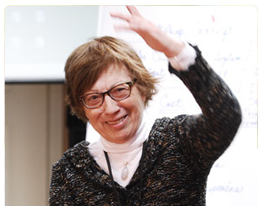By O’Shaughnessy’s News Service
California’a Department of Social Services (DSS) has recognized the right of people who reside in licensed residential facilities to use medical marijuana. In June 2011 DSS accredited a class taught by Liz McDuffie of the Medical Cannabis Caregivers Association (MCC) for owners, operators and administrators of state-licensed residential care facilities
McDuffie’s class, “California’s Medical Marijuana Program and How It Relates to Adult Residential Facility Access,” provides four hours of credit toward the 40-hour continuing education requirement for licensing renewal. California’s Medical Marijuana Program (MMP) was created by SB-420, which the legislature passed in 2003 with the stated intention of implementing the Compassionate Use Act (Prop 215) passed by the voters in 1996.
McDuffie says the action by DSS is “groundbreaking…and will help many of the patients to participate in the MMP. Most residential care facility licensees have little or no understanding of California’s Medical Marijuana Program or their important role and protection as ‘primary caregivers’ under SB-420.
Her class explains how the state program works, how Title 22 regulations (which govern licensed residential care facilities) support the client’s participation in the MPP, and the role of the collective and cooperative in assuring safe and legal compliance. The class was developed by the MCC Health Care Facilities Committee chaired by Susan O’Leary. McDuffie teaches it twice a month at the MCC Training Center in Pasadena. The MCC is working to offer the class online “in order to reach the majority of bed and board licensees,” McDuffie says.
“We are also focusing on senior centers in an effort to put information directly into the hands of patients who reside in licensed residential care facilities regarding their right to participate in the MMP under Title 22 Regulations.” The MCC will help patients approach their residential care facility regarding participation in the MMP. Through the MCC, operators of residential care facilities can enable patients to participate in the MMP by connecting with collectives and cooperatives.
McDuffie says, “It’s important for collectives and cooperatives to understand Title 22 regulations as they apply to participation in the MMP. “Collectives and cooperatives provide a structure that supports security, non-diversion and compliance with state and local laws. In addition, the collective or cooperative is able to provide business liability insurance, product quality assurance, and serve as an informational resource for licensees and participants in the MMP.”
For more info contact Liz McDuffie, Director Medical Cannabis Caregivers Association
50 North Mentor Avenue Pasadena, CA 91106 626-744-3191
Email: liz@mccdirectory.org





